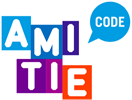Training activities are aimed at raising awareness among civil servants and teachers about the complex relationship between Migration, Development and Human Rights. Through the trainings, the civil servants and teachers gain knowledge and are oriented towards action they can take in their own daily activities. The innovative aspects are the idea of co-development and the emphasis on the involvement of local authorities and citizens.
Training activities take place in all partners' local contexts, delivering a total of 1 pilot project for teachers (a residential training that will be delivered in Italy), 6 national trainings for civil servants, 5 national trainings for teachers. Specific targets of the training courses are civil servants and teachers, as well as students and migrant associations.
Policy-makers and civil servants and other public employees working on development cooperation, active citizenship, migration and anti-discrimination are involved in the training. The estimated number of professionals trained is 180, the estimated number of professionals reached by the activity is around 600, plus the very wide number of Local Authorities that will be reached through dissemination activities.
Schools and teachers of secondary/high schools participate in the action as multipliers of positive experiences and practices supporting cooperation between local communities from different countries. There are 210 trained teachers, while the estimated number of students reached by the activity is around 600 and at least 2500 more through dissemination activities. Through the pilot training in Italy, another 1700 students are reached.
Migrants are viewed as a valuable source of skills and competencies for the training, and therefore directly involved. At least 60 migrants associations, will participate in the action (in the planning and delivery) and experts from African Countries will also be invited as trainers.
Training activities are delivered by a multidisciplinary and multi-agency teaching team, with a participatory and practice-oriented approach, aiming at enhancing the level of competences and awareness of teachers and civil servants on the project's topics and fostering co-operation between the local authorities that will deliver the training and the migrants associations and other key actors involved in delivering them. The whole process is widely disseminated through a booklet that will be the final product of the training activities.
The main contents of the training courses are: History of immigration/emigration and recent data/flows; Models of multiculturalism and integration; Construction of migrants’ images and narratives (also in the media); Contribution of migrants to the local/national economy and data on the main economic sectors in which they are involved; Critical discussion of the norms/rules regulating migration (entry, residence permit, expulsion, etc.), status of vulnerable migrants, History of development cooperation policies, conceptions, practices and limitations (economic development, human development, co-development); History and possible conceptions of human rights; Ethical approaches to human rights, development and migration; Role/activity of LAs and other regional/national authorities in each field (migration, development, human rights), Science, Technology & Development/Migration; Ecological approach to migration.
“Next generation of schools” addressing students and young people
Another important training activity, “Next generation schools” directly involves students. The name has been chosen for three reasons: the topics dealt with are important for the next generation living in a world of inter-cultural and diverse relations; the use of social media to create and promote products points towards the need to deal with communication about these issues in modern societies; the involvement of youths not only as beneficiaries, but as responsible actors shows the approach a new generation of learning should have: participatory, on equal terms, acknowledging the competences of learners.
Next generation schools targets between 20 and 40 secondary school pupils, aged 14-18, including teens with migrant background in each partners' context. It focuses on raising awareness on issues relevant to migration, development, human rights, cultural diversity and inter-cultural dialogue. The activity is implemented with groups involving a large number of teens with a migrant background, fostering their participation and empowerment. Finally, the focus on communication improves their skills on the creation of audiovisual products relating to the topic of the project.
The activities relating to the training course are supervised by the local facilitator with experience on the following topics: non-formal education, human rights, migration and intercultural dialogue. The tasks of the facilitator are to set-up and coordinate the work of the local youth teams and to ensure liaison with the pupils, to support communication activities and to act as a youth contact point for the organization of the final visibility events.
Experts on social media and on creation of audio visual materials (representatives of non-governmental organizations or other organizations professionally working with development of audio visual materials) are involved in the implementation of the activity.
The working methods facilitate the exchange of information, building awareness and provide holistic training for new competencies, i.e. knowledge, skills and attitudes. The program is designed as a mutual learning situation, where young people can get new experience and compare different understanding of and opinions on issues of migration, human rights and development. Participants experience new approaches to promotion of positive images of migration through the communication they develop within the project. Methodology includes communication based methods (interaction, dialogue, open discussions), activity based methods (sharing experience, simulation, practice and experimentation), socially focused methods (partnerships, teamwork, networking) and self-directing methods (creativity, discovery, responsibility, action) to address the issues in a friendly and accessible language.
